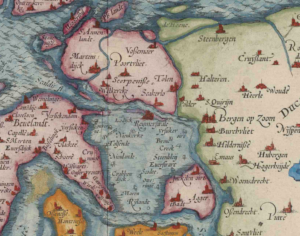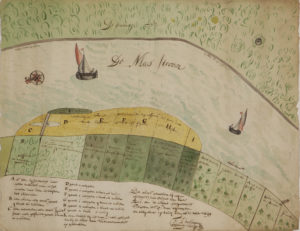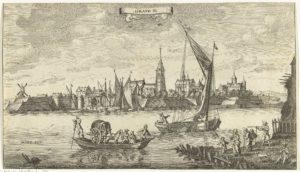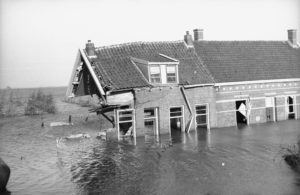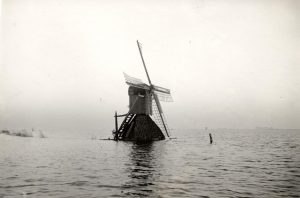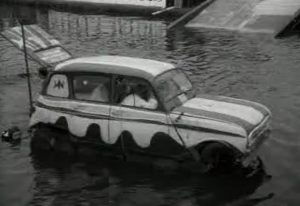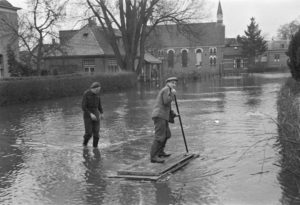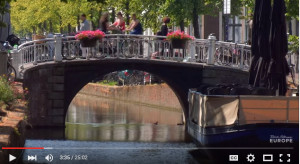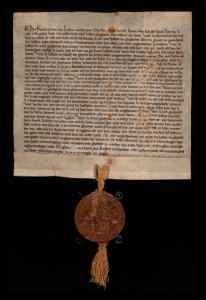The Netherlands is located in the delta of several of Europe's major rivers, including the Rhine, the Scheldt, and the Meuse. Over time, more than a hundred villages and cities in the Netherlands were lost to water. In a few cases, catastrophic floods washed away a whole town, like during the St. Elisabeth Flood of 1421. In other cases, repeated smaller floods caused people to abandon a place. This happened in West-Vlieland and Reimerswaal, for example. It could also be that the townsfolk … [Read more...]
Dutch term – Aanwas
Aanwas means increase. The term can often be found in reference to increase in land because of river deposits. Laws specified who owned the aanwas. Sometimes neighbors argued about the rights to the newly created land, for example if one property owner lost land because of erosion while his neighbor gained land due to deposits. These conflicts can create civil court records, sometimes including old maps showing the disputed land. … [Read more...]
Dutch term – Veer or Veerpont
A veer or veerpont is a ferry. If you can't find a person, try looking in the records on the other side of the ferry. People living on one side of the river may have normally used a ferry to go to church, but if the ferry was out during the winter or bad weather they might have had to go to another church to have their children baptized. People could have used the ferry to go to a market on the next island, and perhaps met a spouse there. If your ancestor was a ferryman, you may find an … [Read more...]
Why the Little Dutch Boy Never Put his Finger in the Dike
He is probably the most famous Dutch boy that never lived. The Little Dutch boy who saved the day by putting his finger in a dike. The book in which he appeared, Hans Brinker; or, the Silver Skates: A Story of Life in Holland, featured several stories. The story about the Little Dutch Boy told how he saved Haarlem from flooding by putting his finger in the dike. Another story about Hans Brinker was about a boy who wanted to win silver skates. Some people think Hans Brinker was the Little … [Read more...]
Dutch term – Overstroming
An overstroming is a flood or inundation. A large part of the Netherlands is below sea level, protected by dikes. If dikes aren't high enough or get oversaturated, the land protected by the dikes can flood. The last big flood was in 1953, when 1836 people died when large parts of Zeeland and Noord-Brabant flooded. … [Read more...]
Dutch term – Pieremagoggel
A pieremagoggel is a vessel, but not a boat since it cannot have a keel. The term is sometimes used to denote a ship that was no longer considered sea-worthy. Other pieremagoggels are built for fun, rather than any practical applications. Pieremagoggel contests score the vessels based on their creativity, and ingenuity of the propulsion mechanism, humor, and esthetics; with winners in different categories. It is not surprising that students of polytechnic schools often enter … [Read more...]
Dutch term – Dijkgraaf
A dijkgraaf is a dike reeve, the head of a waterschap [water board]. He is responsible for the water management, including flood control, in his district. His function is similar to a mayor of a municipality. Nowadays, a dijkgraaf is appointed by the King for a period of six years. Historically, a dijkgraaf was usually somebody who had extensive property in the district for which he managed the water, to ensure he would do his best to keep the land dry. If your … [Read more...]
Quick tip – The Netherlands: Beyond Amsterdam
If you want to learn about the history of the Netherlands and our fight against the sea, watch this 25-minute YouTube Video by Rick Steve. The Netherlands: Beyond Amsterdam (YouTube) … [Read more...]
Dutch term – Waterschap
The Waterschap is the water board, the government agency responsible for water management. With half our country below sea level, that is a big responsibility. Just last night, the water boards decided to close the storm surge barriers between the North Sea and the rivers to prevent major flooding. Water boards have been around for a very long time. The Hoogheemraadschap Rijnland water board for example, was invested by count Floris V of Holland in 1286. That water board exists to this day … [Read more...]
